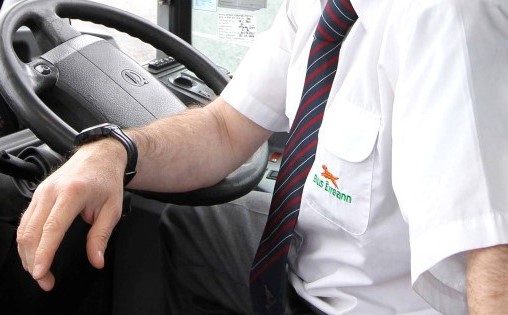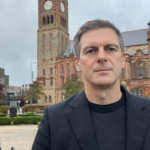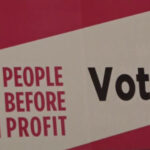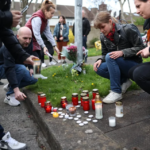ohn Houlihan has been a bus driver in Cork since 1988 and is a member of the National Rail and Bus Union (NBRU). Below is an interview in which he outlines the reasons for the ongoing dispute and provides insight into the scale of the threat to working conditions and the policy decisions that led to the dispute with government.
People Before Profit: Can you give a brief background to this dispute and how the threat of strike came about?
John Houlihan: In 2008, because of the banking crisis, a pay increase that we were due was not paid. After that, things started slowing down in the economy – there were no pay increases, everything was frozen. Investment in the company was frozen by the government. We were going along OK for a while, but then the company’s finances took a turn because the government subvention was lowered, which meant that they needed to make savings. So, for 19 months, we basically took a pay cut of between €50 and €120 per week as part of a cost recovery programme. In the meantime, the company was saving money because payroll costs were down. Then the government reduced the subvention again, which meant that Bus Éireann workers were subsidising their own jobs. That finished in January 2016. We were due to make an application for an increase from 1 January 2016. That wasn’t processed through the Workplace Relations Commission (WRC) but Dublin Bus’s pay-rise was (which was 2.75% per year for three years). The expectation from us was that the labour court would recommend the same to us – our basic pay is practically the same. However on the 9 December the company refused to negotiate at the WRC and told the court they were not in a position to fund any increases.
In January, the new CEO Ray Hernan told the unions that they needed to make savings; that the Expressway network was haemorrhaging money – this started off as €6m, then €8.5m, then €12m, and the final document he brought out envisaged payroll and other savings of €30m. The unions recognise this as an effort to make Bus Éireann a low-cost operator, because by 2019, 10% of the Bus Éireann network will be put out to tender by the National Transport Authority (NTA). In other words, anybody can tender for the Public Service Obligation (PSO) work that Bus Éireann currently has. Bus Éireann are allowed to tender for it, but if their costs are too high they won’t win contracts. So in an effort to push costs down they want to achieve a saving of €30m.
These measures would take an average of 30% from each bus driver’s wage packet. They would also bring something into a state company that has never been in any state company – part-time bus drivers and casualization of bus drivers’ employment. They will employ people on what will probably be zero-hour contracts and drivers will only be paid as long as they are driving a bus and collecting fares.
The changes in the work practices would put our working conditions back 50 years. The level of conditions and services that we have will have been wiped out at a stroke.
If the success of this operation [by Bus Éireann management] is seen by other companies within the state sector, they will obviously say “OK, this is the way to go for us as well”. So we feel this is not just about us. This is a blueprint for the race to the bottom in the state sector.
People Before Profit: We see continuously in the news that Bus Éireann is making a loss. Would bringing the subvention back up to previous levels not be a solution?
JH: In the past Bus Éireann were making a profit, and that was being reinvested back into the company, probably to subvent their own Expressway network. Now that profit has gone. The Expressway network, because it’s commercial, it’s not allowed to be subvented by the state. If that makes losses, because it’s a commercial enterprise, there is no way around that. The government cannot pay into commercial services. The NTA have estimated that – and this is backed up by the review by Grant Thornton – the average fare on Expressway buses is €11.60. The amount of money that Bus Éireann get per journey for free travel [from the Department of Social Protection (DSP )] is €4.60- so there is a shortfall of around €7 per passenger. The amount of money that was paid to Bus Éireann for the Expressway network from the DSP was €11m (which equates to €4.60 per passenger). If the true value of the free travel was given to Bus Éireann for the Expressway network, there wouldn’t be any shortfall because these additional funds would wipe out the losses that Bus Éireann are making. Even the NTA have said that for Iarnród Éireann, the money that is paid from the DSP has to rise, because they’re not getting the true value for what has been provided. That hasn’t been reviewed since 2010.
People Before Profit: How has government policy influenced the lead-up to this crisis?
JH: There is saturation of the private sector on the Expressway network in certain areas. On 28 February, Anne Graham – who is the CEO of the NTA – was asked if anything was going to be done about the closure of routes such as Dublin to Clonmel. The NTA had made a promise that no one would be left behind. She said there is enough with the present [private] carriers there for the people. If Bus Éireann are taken out of the equation, and the private carrier has enough capacity to take the people, why did they give a licence to them in the first place? That’s the saturation of the market, it’s an oversupply of seats. Passenger levels have grown by 50%, but in some areas they have increased the seat capacity by up 120%. If you saturate the market, someone has to suffer. The shortfall has to be felt by somebody.
People Before Profit: Are there inefficiencies with Bus Éireann as an institution? Are fares too high? Would you agree that there are problems with Bus Éireann that need to be addressed?
JH: The Department of Transport wrote to Bus Éireann with regard to what is happening with the Expressway network asking for solutions. Bus Éireann replied and said they can either (1) invest more money into the Expressway network, (2) close the network completely, or (3) do nothing. If the network was closed it would cost approximately €74m in redundancy payments. That was rejected by the Department. Investing money was rejected by the Department, and the “do nothing” approach was rejected. They were given options of how to save money in 2015. This was all coming to a head just before the General Election of 2016. Rather than face industrial unrest during a general election, the Department of Transport decided to bury it. When the election was over they sent in [accountancy firm] Grant Thornton to do a review which recommended that Bus Éireann exit the Expressway network.
Because of the huge motorway network, much of the Expressway network is redundant. We have a situation where the [private] operators that are licenced by the NTA, run between Dublin and Cork, Limerick, Waterford, Galway, Derry and Belfast – all without stops. Bus Éireann are not allowed to do that – they must serve the towns along the way, which makes them a [local] network (which is also necessary) rather than an Expressway network. Routes can be taken into PSO control. The Athlone to Westport Expressway service was being discontinued by Bus Éireann. The NTA said that they are now going to PSO that route. There were previously 28 services per week. Because they are going to PSO it and pay for it, there are going to be 56 services. Bus Éireann are going to operate it. This is what we’ve been saying all along. That maybe we need to PSO our current Expressway network and that way the NTA will pay for it. That’s a way to solve the problem. But because the NBRU can’t get the NTA into the WRC, we can’t make the PSO argument face to face with them.
We need the NTA and the Department of Transport in at the talks. The Minister for Transport said today that he wasn’t going to intervene personally. But he could ask the Department and the NTA to attend these meetings.
The fares in Bus Éireann aren’t high by international standards. The reason that they’re not high is because the wages are fairly moderate. But private operators are paying minimum wage and the drivers for them are going to the DSP to claim the Family Income Supplement. So the government are subsidising private operators paying low-cost wages. It’s a subsidy by the back door.
Bus Éireann no longer have the power to decide what fares are. The NTA decide what the fares are. They decide the timetable. Bus Éireann are not allowed to start up a new route unless the NTA give approval. An awful lot of the control that Bus Éireann have over their own operations is practically gone.
People Before Profit: What can the general public do if they wish to support the bus workers?
JH: Support from the public is needed more in this dispute than any other. While it is true that we are fighting to retain our terms and conditions, we are also fighting to retain the Bus Eireann network for Urban and Rural services.
The NBRU are going to towns around the country and having meetings with the local population and representatives – to highlight the fact that their bus services are under threat. The NBRU have a campaign called SOBS (Save Our Bus Services) – visit www.nbru.ie for further details.












